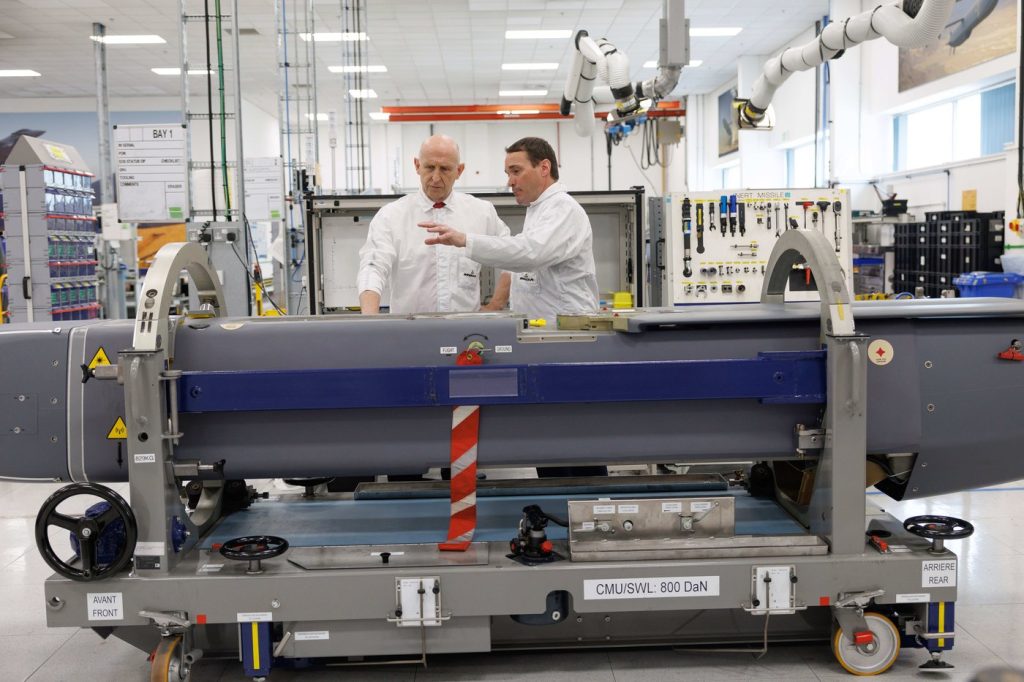LONDON (AP) The United Kingdom is set to bolster its military capabilities by constructing new nuclear-powered attack submarines and preparing an army to engage in potential conflicts in Europe. This initiative reflects a substantial increase in military spending aimed primarily at sending a significant message to both Moscow and Washington.
Prime Minister Keir Starmer emphasized the urgent need to address the threats posed by Russia, declaring that Britain “cannot ignore” these challenges. He pledged to implement the most extensive changes to the U.K.'s defense policies since the end of the Cold War over thirty years ago. According to Starmer, the current geopolitical climate is marked by unprecedented instability and increased threats.
The announcements are timed with the government's response to a strategic defense review initiated by Starmer and headed by George Robertson, a former U.K. defense secretary and NATO secretary general. This marks the first comprehensive review since 2021 and comes in the wake of Russia's full-scale invasion of Ukraine in February 2022 and the re-election of President Donald Trump last year.
Following the conclusions of Britain's last major defense review in 2021, former Prime Minister Boris Johnson confidently stated that the era of large-scale tank battles on European soil had ended. However, this assertion was undermined shortly thereafter when Russian forces invaded Ukraine.
Starmer's Labour Party government has committed to accepting all 62 recommendations from the current defense review, which aims to enhance the U.K.'s ability to respond to emerging threats across land, air, sea, and cyberspace. Defense Secretary John Healey stated that these changes would not only send a strong message to Moscow but also transform the country's military in a significant way after decades of military reduction, although he noted that troop numbers, currently at a historic low, may not see any increase until the early 2030s.
Healey also confirmed that plans to elevate defense spending to 2.5% of the national income by 2027 are on track, with expectations that spending will reach 3% before 2034. However, Starmer regarded the 3% goal as an “ambition” rather than a firm commitment, leaving uncertainty about the cash-strapped Treasury's ability to fund such initiatives. The government has controversially reduced international aid to meet the 2.5% target.
In terms of deterring Russian aggression, discussions among NATO leaders include a potential commitment to increase defense spending to at least 3.5% of GDP. The U.K. is set to enhance its military capabilities significantly, planning to construct up to 12 nuclear-powered, conventionally armed submarines as part of the AUKUS partnership with Australia and the United States. Furthermore, the government intends to invest an additional £15 billion in Britain's nuclear arsenal, which includes missiles deployed on a limited number of submarines.
Concerning Britain's conventional capabilities, there are plans to increase weapon stockpiles with the production of up to 7,000 long-range weapons manufactured in the U.K. Starmer mentioned that this rearmament initiative would not only improve national defense but would also create a "defense dividend" of well-paying jobs, contrasting with the post-Cold War "peace dividend" that saw reduced defense spending.
In the aftermath of Russia's aggression, the U.K., along with other NATO members, is reevaluating its defense spending. Healey indicated that Russia is engaged in daily cyberattacks against the U.K., with 90,000 attacks linked to state sources in the past two years. As a countermeasure, plans for a dedicated cyber command are anticipated as part of the review.
This military strategy shift signals a dual message to both Moscow and Trump, indicating that European nations are responding to calls for increased defense investment. European countries, led by the U.K. and France, have been actively coordinating defense measures amidst Donald Trump's evolving foreign policy, which appears to prioritize non-involvement in European security.
James Cartlidge, defense spokesperson for the Conservative Party, acknowledged the importance of increased defense funding but expressed skepticism regarding the government's 3% commitment. He stated that Labour's promises derived from the strategic defense review must be substantiated by clear financial backing to gain credibility.










